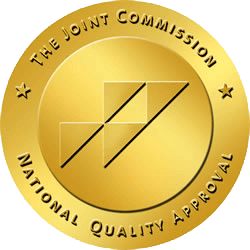With 11.5% of high school seniors using an illicit drug other than marijuana and another 35.7% using marijuana last year, parents understandably wonder how to talk about substance abuse to teens. Teens and adolescents have to navigate complex relationships, challenges, and social pressures while learning how to make responsible decisions. This can make it easy for teens to experiment with substances like alcohol, marijuana, and prescription medications. Anyone can develop a substance abuse disorder. Even recreational use of psychoactive substances poses the risk of dependency and addiction. Also, learning how to talk about substance abuse to teens is important, as doing so decreases the chances of developing an addiction as an adult.
How to Talk About Substance Abuse to Teens
Drug use among teens has decreased over the past ten years. However, more teens are experimenting with substances like prescription drugs and marijuana. Drugs and alcohol are powerful neurotransmitter inhibitors that force your brain to release more neurotransmitters than it should. This process leads to your brain associating your substance of choice with pleasure, which alters your pleasure and reward center. Once your brain connects drugs and alcohol with happiness, it reinforces substance use. As brain chemistry changes, it rewards using and punishes abstinence by controlling the release of neurotransmitters. Since teens are still developing, these brain chemistry changes can create drastic mood changes. That makes it important to understand how to talk about substance abuse to teens, as teens may not know the dangers that drugs and alcohol pose. Using substances like alcohol and marijuana can create cross-tolerance, which means using marijuana can cause you to have an increased tolerance to other substances. Another reason it’s important to know how to talk about substance abuse to teens is that many drugs, like prescription opiates, can cause fatal overdoses.
How Substance Abuse is Treated
Substance abuse disorders are complex mental health diseases that are progressive and chronic. That makes early treatment essential to recovery. Symptoms continue to get worse until you complete treatment. During addiction, you build a tolerance to your substance of choice, forcing you to constantly have to use more to feel the same pleasurable effects. Because your brain associates your substance of choice and people, places, and things that remind you of your substance of choice with pleasure, you experience intense cravings when exposed to triggers. Inpatient and outpatient treatment programs provide you with the tools, guidance, and education necessary to manage your recovery. Treatment programs specialize in teaching you how to combat cravings and utilize healthy coping strategies when you’re exposed to triggers. Rehab also empowers you to change negative and self-destructive thinking patterns, as well as:
- Address the underlying causes of your addiction
- Receive dual diagnosis treatment
- Incorporate your loved ones in your treatment
- Change negative feelings and behaviors
Reaching Out for Help Today
While myths about drugs and alcohol may make teens think recreational use and experimentation are safe. But the truth is all psychoactive substances pose the risk of addiction. Learning how to talk about substance abuse to teens is an important way to protect your teen from developing a substance abuse issue. To find out more about our teen treatment programs, contact us today at 877.466.0620.


